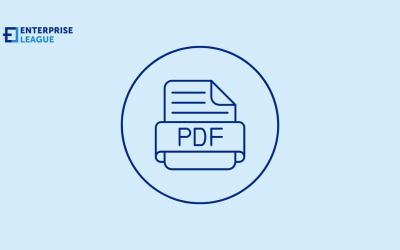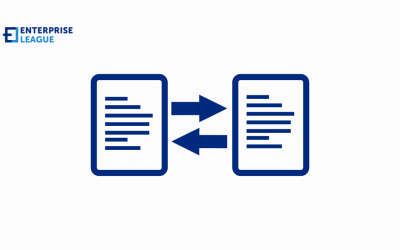The trucking industry is undergoing a significant transformation, driven by the emergence of innovative startups that are reshaping traditional business models and leveraging technology to address long-standing challenges. In this comprehensive article, we will delve into the main changes in the trucking industry, exploring the introduction of technology, the disruption of traditional business models, and the efforts to address the ongoing driver shortage.
We will analyze the main types of trucking startups, including on-demand trucking services, digital freight brokers, and advancements in trucking automation and self-driving trucks. We will examine the benefits that these startups bring, such as increased efficiency, improved safety, and greater flexibility, while also addressing the challenges they face, including regulatory hurdles and technological limitations.
We will explore the future of trucking startups, discussing their potential impact on the industry, the challenges they may encounter, and the innovative solutions that may arise. Join us as we uncover the dynamic landscape of trucking startups and their profound influence on the industry.
What are the main changes in the trucking industry?
The integration of automation and data analytics has revolutionized fleet management, improving efficiency and safety. Moreover, electrification of trucks is gaining traction, reducing emissions and operating costs. In response to the driver shortage, companies are implementing driver retention programs and exploring autonomous driving technology to alleviate the burden on human drivers. These innovative approaches are reshaping the industry, fostering sustainable growth and resilience in the face of ongoing challenges.
Introduction of technology
The introduction of technology in the trucking industry has revolutionized operations, leading to the development of advanced vehicle systems, autonomous capabilities, and innovative fleet management solutions.
These advancements in vehicle systems have significantly improved fuel efficiency, safety, and overall performance.
Autonomous technologies, including platooning and predictive maintenance, are reshaping the future of trucking by enhancing driving safety and optimizing logistics. Innovative fleet management solutions give the power to by GPS tracking and fleet telematics, and data analytics offer real-time insights, ensuring optimized route planning, efficient asset utilization, and proactive maintenance scheduling for commercial fleets.
Disrupting traditional business models
Trucking startups and industry leaders are disrupting traditional business models through innovative logistics strategies, direct-to-consumer delivery models, and strategic partnerships with major retailers and tech companies.
This shift in the trucking industry is reshaping the way goods are transported and delivered. The integration of advanced technologies such as AI-driven route optimization and real-time tracking systems has revolutionized the efficiency and accuracy of delivery operations.
The rise of last-mile delivery services has allowed for quicker and more convenient customer experiences, bypassing the traditional supply chain intermediaries.
Addressing driver shortage
The persistent driver shortage in the trucking industry has prompted startups and associations to explore autonomous solutions, driver retention programs, and alternative recruitment strategies to mitigate the workforce challenges.
Autonomous solutions are being developed to address the shortage, aiming to reduce the dependency on human drivers and increase the efficiency of transportation operations. Simultaneously, driver retention programs are being emphasized to nurture a supportive and fulfilling work environment, tailored to the needs and well-being of truck drivers.
Innovative recruitment strategies, such as targeted outreach to underrepresented communities and advancement of driver training programs, are being explored to attract and retain a diverse and qualified workforce.
What are the main types of trucking startups?
Trucking startups encompass various types, including on-demand services, digital freight brokers, and companies leading the development of trucking automation and self-driving technologies.
On-demand services are revolutionizing the trucking industry by providing immediate and flexible freight transportation solutions, catering to the rapidly changing consumer demands. Digital freight brokers are enhancing efficiency and transparency in freight matching and booking, streamlining the process and reducing the reliance on traditional intermediaries.
Advancements in trucking automation and self-driving technologies are poised to reshape the industry, with companies investing in autonomous trucks and exploring the potential for safer and more cost-effective transportation.
On-demand trucking services
On-demand trucking services offer flexible and responsive freight transport solutions, catering to the dynamic needs of businesses and consumers for efficient and timely deliveries.
These services are designed to adapt to varying shipment sizes, schedules, and destinations, ensuring that shipments are handled swiftly and effectively. The flexibility of on-demand trucking means that companies can scale their transportation needs without committing to long-term contracts or fixed capacity. This allows for greater adaptability in meeting peak demand periods, reducing the risk of overpaying for underutilized services. The responsive nature of these services enables quick adjustments to changing logistical requirements, ensuring that deliveries can be made promptly and reliably.
Digital freight brokers
Digital freight brokers leverage technology to streamline and optimize freight matching, offering enhanced visibility, efficiency, and cost-effective solutions for shippers and carriers in the trucking industry.
By utilizing advanced algorithms and machine learning, these brokers have redefined the traditional process of matching freight with available capacity, minimizing empty miles and reducing overall transportation costs. Through their technology-driven approach, they can accurately track shipments in real-time, providing transparency and insights that enable knowledge-based decision making for all parties involved. This results in improved operational efficiency, reduced environmental impact, and ultimately, a more sustainable and profitable supply chain ecosystem.
Trucking automation and self-driving trucks
Trucking startups are at the forefront of developing and deploying automated self-driving trucks, ushering in a new era of transportation efficiency, safety, and operational autonomy.
These advancements are revolutionizing the industry by enabling trucks to navigate through complex routes with enhanced precision and reduced human intervention. With the integration of artificial intelligence and sensor technologies, self-driving trucks can make real-time adjustments, optimize fuel consumption, and minimize traffic disruptions.
Furthermore, automated systems are designed to enhance safety measures, detect potential hazards, and react promptly to prevent accidents. This transformative technology also opens up possibilities for round-the-clock operations, minimizing downtime, and ultimately, maximizing overall productivity in the logistics ecosystem.
What are the challenges facing trucking startups?
Trucking startups encounter various challenges, including regulatory hurdles, resistance from traditional companies, and technological limitations, posing obstacles to their growth and operational advancements.
Navigating the complex web of regulations and compliance standards can be particularly daunting for startups entering the trucking industry. They have to contend with different rules and requirements across various states and regions, adding layers of complexity and administrative burden.
Established trucking companies may not be welcoming to new entrants, creating resistance and competition in an already crowded market. Further complicating matters, the technological limitations present hurdles in adopting advanced logistics and fleet management systems, impacting efficiency and cost-effectiveness.
Regulatory hurdles
Trucking startups navigate through regulatory hurdles such as compliance standards, licensing requirements, and industry regulations, which significantly influence their operational scope and market expansion.
These compliance standards encompass a wide array of aspects, including safety protocols, vehicle maintenance, and hours-of-service regulations. The meticulous adherence to these standards not only ensures legal compliance but also enhances the overall safety and efficiency of operations.
Obtaining the necessary licensing requirements involves a complex process, which demands thorough documentation, financial capacity verification, and compliance with local, state, and federal regulations. Missing any of these requirements can lead to significant setbacks for the startup, hindering their ability to compete and expand.
Industry regulations, encompassing areas such as freight rates, truck weight limits, and environmental standards, further dictate the operational framework for trucking startups. Achieving compliance with these regulations demands a deep understanding of the industry landscape and the capability to adapt swiftly to changes in legislation.
Resistance from traditional trucking companies
Traditional trucking companies pose resistance to the entry and growth of startups, creating competition challenges, market access barriers, and strategic conflicts, impacting the industry’s landscape and innovation potential.
The competitive landscape in the trucking industry presents significant hurdles for startups aiming to establish their foothold. Established companies often have a loyal customer base and well-established networks, making it difficult for newcomers to access the market. The high capital requirements and operational complexities further intensify the barriers for new entrants. Strategic conflicts may arise as startups attempt to disrupt the traditional business models, leading to resistance and pushback from the established players.”
Technological limitations
Trucking startups encounter technological limitations in areas such as infrastructure support, connectivity, and integration, impacting the deployment and scalability of advanced systems and autonomous solutions in the industry.
Trucking startups often face challenges due to the absence of robust infrastructure support, hampering the seamless implementation of cutting-edge technologies. The reliability of connectivity for data transmission and real-time monitoring is crucial for their operations, and inadequate connectivity hinders their efficiency. Integrating different systems and software poses considerable difficulty, as compatibility issues and interoperability constraints frequently arise, hindering the seamless functioning of the overall technological ecosystem.
What does the future hold for trucking startups?
The future of trucking startups is poised for continued growth, innovation, and potential impact on the industry, as they address challenges, drive technological advancements, and explore solutions for sustainable and efficient freight transportation.
With the increase in e-commerce and the demand for efficient last-mile delivery, trucking startups are expected to further revolutionize the industry through technology-driven solutions such as autonomous vehicles, route optimization software, and predictive maintenance systems.
The focus on sustainability and environmental impact is likely to drive the development of alternative fuel technologies, renewable energy solutions, and eco-friendly fleet management practices, positioning trucking startups at the forefront of the green transportation movement.
The ongoing integration of real-time tracking, blockchain applications, and data analytics is anticipated to enhance overall operational efficiency and supply chain visibility, offering potential savings and performance improvements for both startups and established industry giants.
Continued growth and innovation
With the implementation of AI-driven logistics management and the integration of telematics, these startups are poised to optimize route planning, reduce fuel consumption, and enhance overall operational efficiency. The adoption of blockchain technology is anticipated to revolutionize supply chain transparency and security, providing a competitive edge in an evolving market.
The expansion of services to include last-mile delivery solutions and cold chain logistics is set to address the increasing demands for efficiency and sustainability in transportation. This diversification allows these startups to not only meet current market needs but also stay ahead of the curve in anticipating future industry developments.
Potential impact on the industry
Trucking startups have the potential to significantly impact the industry through disruptive business models, sustainable practices, and the integration of advanced technologies, shaping the future of freight transportation and logistics operations.
These startups are challenging traditional freight processes by introducing innovative business models that prioritize efficiency and cost-effectiveness. Their emphasis on sustainability initiatives is reshaping the industry’s environmental footprint, with a focus on reducing emissions and implementing eco-friendly practices.
Alongside this, the technological integration in their operations is revolutionizing the way goods are transported and monitored, leading to improved tracking, safety, and overall operational excellence. As a result, these disruptive approaches are not only transforming the landscape of freight transportation, but also prompting established companies to adapt and innovate to remain competitive.
Potential challenges and solutions
Naturally, the trucking industry is subject to various regulatory frameworks that dictate safety standards, environmental compliance, and operational protocols, necessitating vigilance and compliance to adhere to these stipulations. The intense market competition demands unique value propositions, efficient cost management, and agile market responsiveness. Operational scalability, encompassing fleet management of the vehicles, driver retention, and technological integration, presents a formidable obstacle. Overcoming these obstacles requires strategic planning, embracing technological advancements, fostering industry partnerships, and nurturing a cohesive work culture to establish a robust foundation for growth and resilience.
More must-read stories from Enterprise League:
- Find out how to turn your hobby into a business.
- Implement a CRM strategy for your business using this guide.
- Creative and profitable outdoor business ideas you should be aware of.
- How to ask for a deposit in a contract without being awkward or losing a client.
Related Articles
PDFs and the debate between tradition and innovation
Curious about the future of PDF? Learn about its integration with new technologies and explore some practical PDF tips to leverage all the power of this format!
The 10 Ds of entrepreneurship: Why are they important?
Are you familiar with the 10 Ds of entrepreneurship? Let’s see if you possess some or all of them that will launch you for success.
Optimizing performance and reliability in managed file transfer systems
Optimizing the performance and reliability of MFT systems is a continuous process that requires attention to infrastructure, software and strategic processes.
PDFs and the debate between tradition and innovation
Curious about the future of PDF? Learn about its integration with new technologies and explore some practical PDF tips to leverage all the power of this format!
The 10 Ds of entrepreneurship: Why are they important?
Are you familiar with the 10 Ds of entrepreneurship? Let’s see if you possess some or all of them that will launch you for success.






